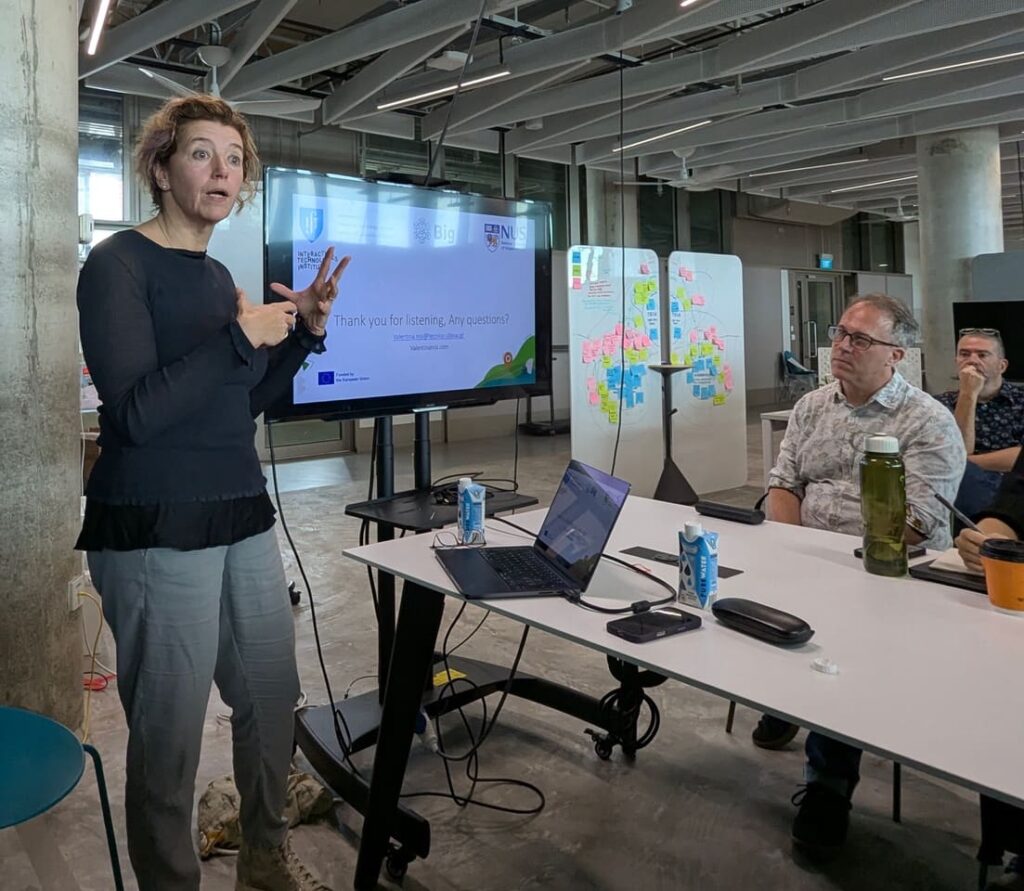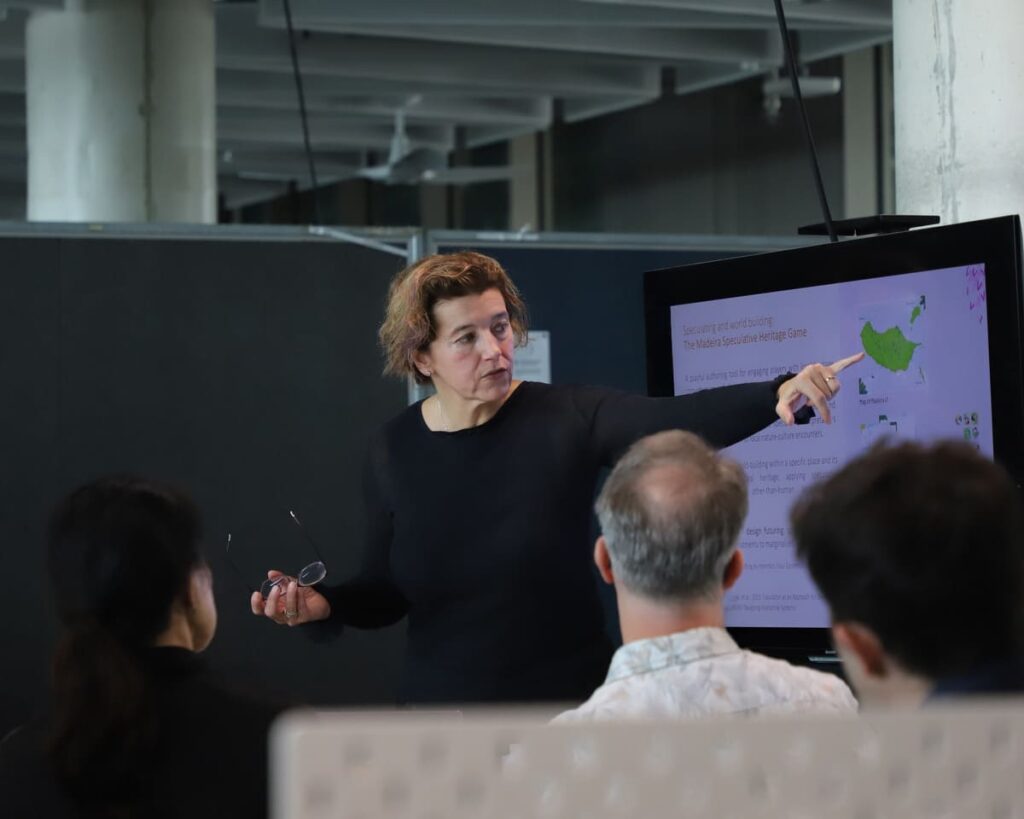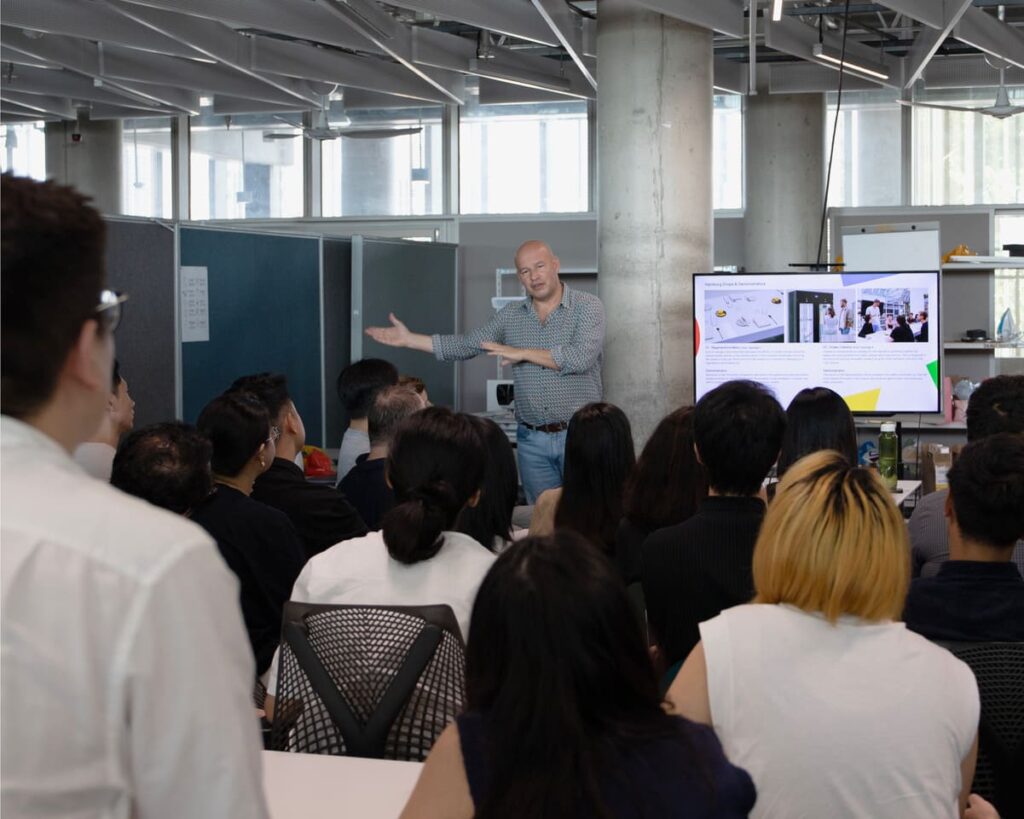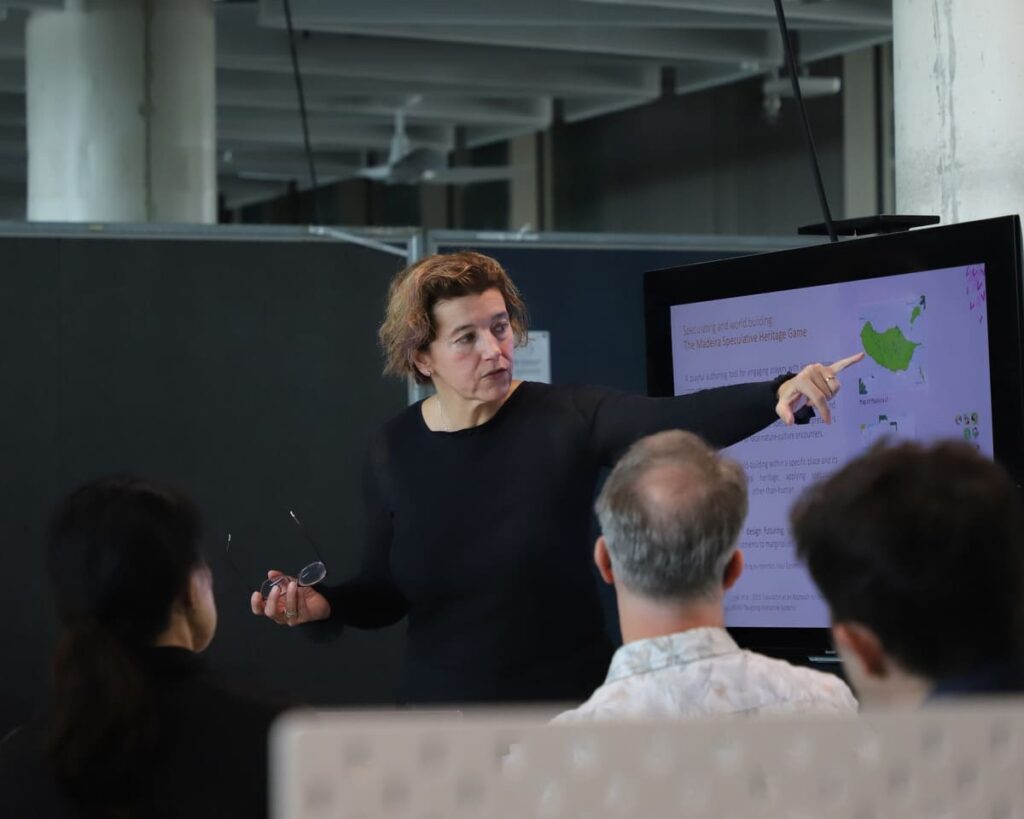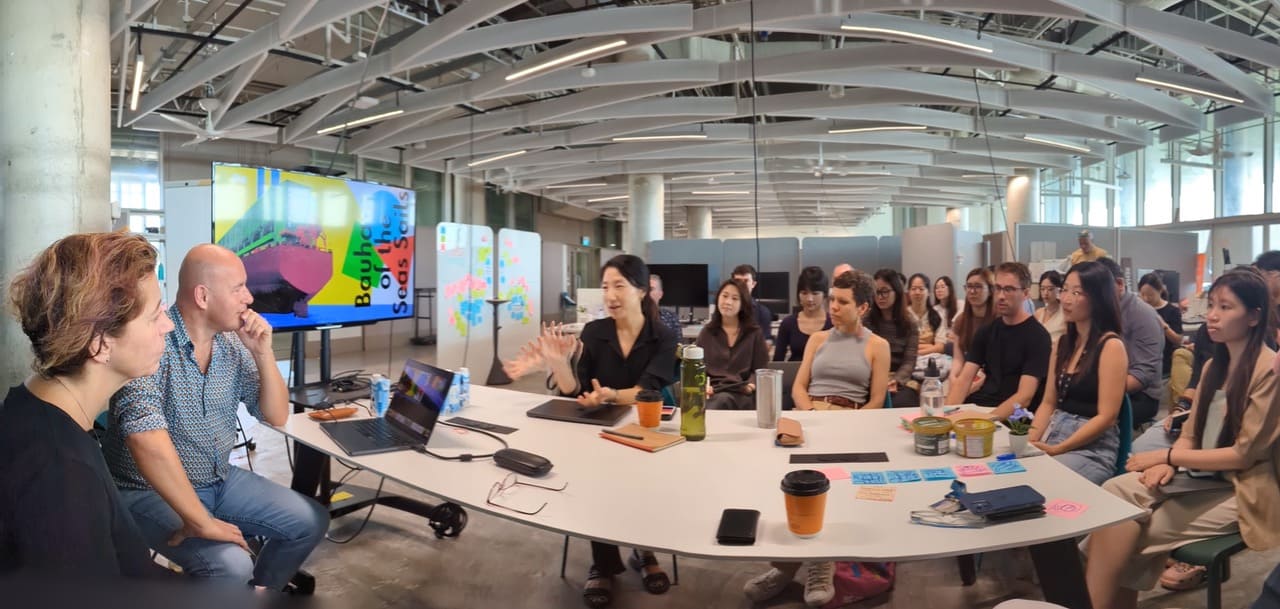As part of its international dissemination strategy, the BIG ERA Chair – Blockchain Technologies and Design Innovation for Social Good – marked a significant milestone in March and April 2025 with a series of academic visits to leading institutions in Asia and Oceania. Funded under the Horizon Europe Programme (Grant Agreement No. 952226), these visits aimed to expand the project’s international reach and foster long-term collaborations in the fields of design, technology, and social innovation.
Professors Nuno Jardim Nunes and Valentina Nisi, both full professors at Instituto Superior Técnico – University of Lisbon and senior researchers at the Interactive Technologies Institute (ITI), were invited to present their latest research findings and engage in knowledge exchange activities at three prestigious universities: the National University of Singapore (NUS), Queensland University of Technology (QUT) in Brisbane, and Victoria University of Wellington (VUW), New Zealand.
Sharing Research and Building Bridges
During their visit to Queensland University of Technology, both professors delivered keynote seminars hosted by the Design Lab. The event was attended by a diverse academic audience and streamed online through the QUT Design Lab’s YouTube Channel.
The recording of the seminars is available at: https://www.youtube.com/@qutdesignlab
In his keynote address, Professor Nuno Jardim Nunes presented “Bauhaus of the Seas – A Vision for the New European Bauhaus”, offering an in-depth look at a flagship NEB initiative coordinated by Portugal. He outlined the development of an interspecies, intergenerational, and intercultural design framework co-created by artists, scientists, and civic stakeholders in seven European coastal cities. He also detailed how blockchain technologies, particularly Distributed Ledger Technologies (DLTs), are being explored in the BIG Project to support participatory urban engagement and implement Decentralised Autonomous Organisations (DAOs) for inclusive, democratic design processes.
Professor Valentina Nisi’s seminar, “Storytelling as a Bridge to Heritage and Cultural Identity”, explored how interactive digital storytelling can preserve and reimagine cultural and natural heritage. Drawing from her work on European projects such as MEMEX and LogaCulture, she demonstrated how locative media, immersive experiences, and participatory design methodologies contribute to social inclusion. She further discussed how blockchain solutions and NFTs are being tested in the BIG Project to ensure cultural traceability and promote the valorisation of natural ecosystems.
Strategic Partnerships and Future Collaborations
Beyond the seminars, Professors Nunes and Nisi engaged in multiple strategic meetings with faculty members, research groups, and institutional leaders across all three universities. These sessions opened new avenues for collaborative research in human-computer interaction, digital ethics, sustainability, and design-led innovation. Specific discussions included the development of joint publications, future student exchanges, and co-designed international research proposals in particular with the University of Canterbury and the Victoria University of Wellington from New Zealand as they are part of the Horizon Europe Program.
This mission reinforces the BIG Project’s ambition to become a reference in the academic and applied research communities, demonstrating how emerging technologies such as blockchain can meaningfully contribute to inclusive, sustainable, and participatory futures
